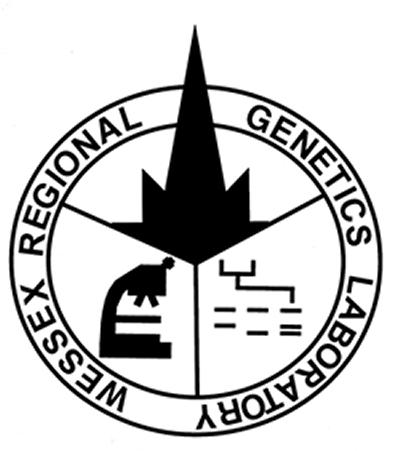
The Laborartories
The Wessex Impriniting Group work with the clinical scientists at the Wessex Regional Genetics Laboratory (WRGL) in Sailsbury Wiltshire.
The WRGL is part of the Clinical Support and Family Services Directorate of Salisbury NHS Foundation Trust (SNFT) and provides an accredited genetics and genomics laboratory testing service for a core population of 2.6 million in the SouthCentral region of England (formerly the Wessex Region). www.wrgl.org.uk
Dr Deborah Mackay, Dr Louise Docherty and Dr Rebecca Poole run the genetic tesiting for TND at WRGL.
WRGL work closely with the Centre for Molecular Genetics at the Peninsula Medical School and Royal Devon and Exeter Hospital, Exeter, UK.
The Tests
To have a genetic test for 6q24 TND a referral needs to be made from a health care worker to the WRGL, Salisbury NHS Foundation Trust, Salisbury, SP2 8BJ, Wiltshire, UK.
Blood samples from the patient and both of the parents (where possible) in EDTA and Lithium Heparin should be sent to WRGL along with key information such as birth weight, results of any medical investigations such as blood tests and scans, age at diagnosis of diabetes, and details of any family history of neonatal diabetes.
The actual age of the patient is not important and patients diagnosed in the first six months of life who are now adults would still be appropriate for genetic testing.
Informed consent from the persons being tested should be taken by the referring doctor for the test to go ahead.
The Results
The results are sent through to the referring health worker within 6-8 weeks of receipt of the blood samples.
If the result of the test is positive for 6q24 TND then the health worker will also receive information on the International Transient Neonatal Diabetes Register to pass on to the patient and their family. They will also receive a more detailed questionnaire about the health of the patient which, if the patient consents to take part in the Register, will be stored confidentially in a database for future research into TND (please see The Register page). The patient may then be contacted by the Wessex Imprinting Group about the register and further follow up.
If 6q24 testing is negative samples can be sent to Exeter for further diagnostic testing for other causes of neonatal diabetes if this is requested.
Confidentiality
WRGL put the blood samples through routine diagnostic procedures and do use names and dates of birth. They use rigorous methods to maintain confidentiality. For example while in the lab they use 2 independent identifiers on each sample. However once the test has been performed the result is relayed to the referrer on an A4 test result sheet that does include the patients name and date of birth on it.
Using the patients' names also prevents the same patient being referred by more than one clinician.